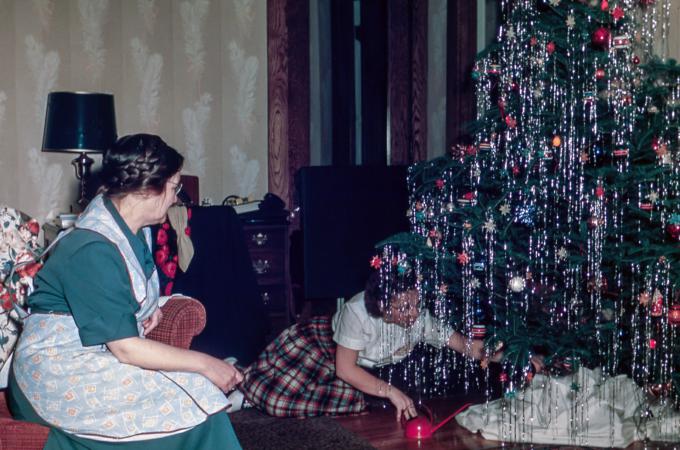Christmas in the making
While it may not command the same level of veneration as Easter, Christmas has profound personal significance for those who have spent their lives celebrating it. The customs of gift-giving, family togetherness and seasonal charity touch us on an individual level. They harken to our unique family stories, relationships and charitable interests. In this way, the celebration of Christ's birth and its accompanying customs have always been uniquely attuned to our inner selves, accompanying us through the changes of time, with memories of past celebrations accumulating behind us.
Dating back to its establishment in 4th century Rome, Christmas responded to the unique circumstances of the ancients, and indeed was shaped by who they were. The new Christian holiday, established by Constantine following his conversion, coincided with a well-established winter solstice celebration called Saturnalia. This was a multi-day festival that featured merrymaking, tree-decorating and gift-giving within families.
The coexistence of pagan customs with Christian tradition would later pose problems for the American Puritans, who were against the celebration of Christmas on these grounds. However, early Church Fathers supported this assimilation. In an article by Andrew McGowan, a professor at Yale's Divinity School, Pope Gregory is said to have "recommended that local pagan temples not be destroyed but be converted into churches, and that pagan festivals be celebrated as feasts of Christian martyrs. At this late point, Christmas may well have acquired some pagan trappings."
Since these multicultural beginnings, world populations have continued to express the Christmas spirit in their own unique ways. In Columbia and Venezuela, Santa Claus doesn't get all the credit for gifts among children. They believe that he makes the gifts, but that the infant Jesus delivers them to children's homes. In Scandinavia, children leave shoes -- not stockings -- on the hearth, in the hopes that they will be filled with treats. In the 1840s, Queen Victoria and her German-born husband, Prince Albert, popularized the custom of bringing an evergreen tree inside and decorating it with lights. An engraving of the royal Christmas tree published in the Illustrated London News was the first time many British citizens had ever heard of the idea.
The wide variety of Christmas customs throughout the world is evidence of Christmas's unique quality of "reaching us" wherever we happen to be, in life, in culture, in geography.
Most of us are familiar with "A Christmas Carol," the classic Dickens story, and with Ebeneezer Scrooge, the solitary, ill-tempered miser who receives visits from the ghosts of Christmas Past, Christmas Present and Christmas Yet To Come. Scrooge's journey through time reveals the pitiful legacy he will leave behind if he does not become a better, warmer person. The 1843 publication of "A Christmas Carol" brought about a profound change in the way Christmas was viewed in western cultures, recasting the holiday as an occasion for personal transformation. The story's themes of togetherness, family and hospitality have influenced the way we celebrate Christmas in the modern era (even the phrase "Merry Christmas!" was coined by one of Dickens' characters). It is also a deeply personal story, in which Scrooge's inner fears, lost opportunities and personal shortcomings are probed at great lengths by the Christmas ghosts.
Most of us have an idealized notion of how we should celebrate Christmas -- with specific people, in a specific place, according to specific customs. Some of these customs and people might date back to childhood. Others we might have adopted later on in life, as family circumstances evolved. Because life is so fluid so, too, is the annual celebration of Christmas. The older we become, the differences between our past and present Christmases can be as jarring as Scrooge's journey through time.
If you have ever found yourself feeling that the holidays fell short of your expectations, remember that Christmas has always been what we make of it. Then as now, the holidays respond to our unique circumstances. Centuries of tradition and sacred values seem poised and ready to adjust to our small human lives, meeting us in the present moment, so long as we continue to open ourselves to celebrating them.
- Adam Johnson writes for Youville Assisted Living Residences, member of Covenant Health Systems, a Catholic, multi-institutional health and elder care organization serving New England.



















